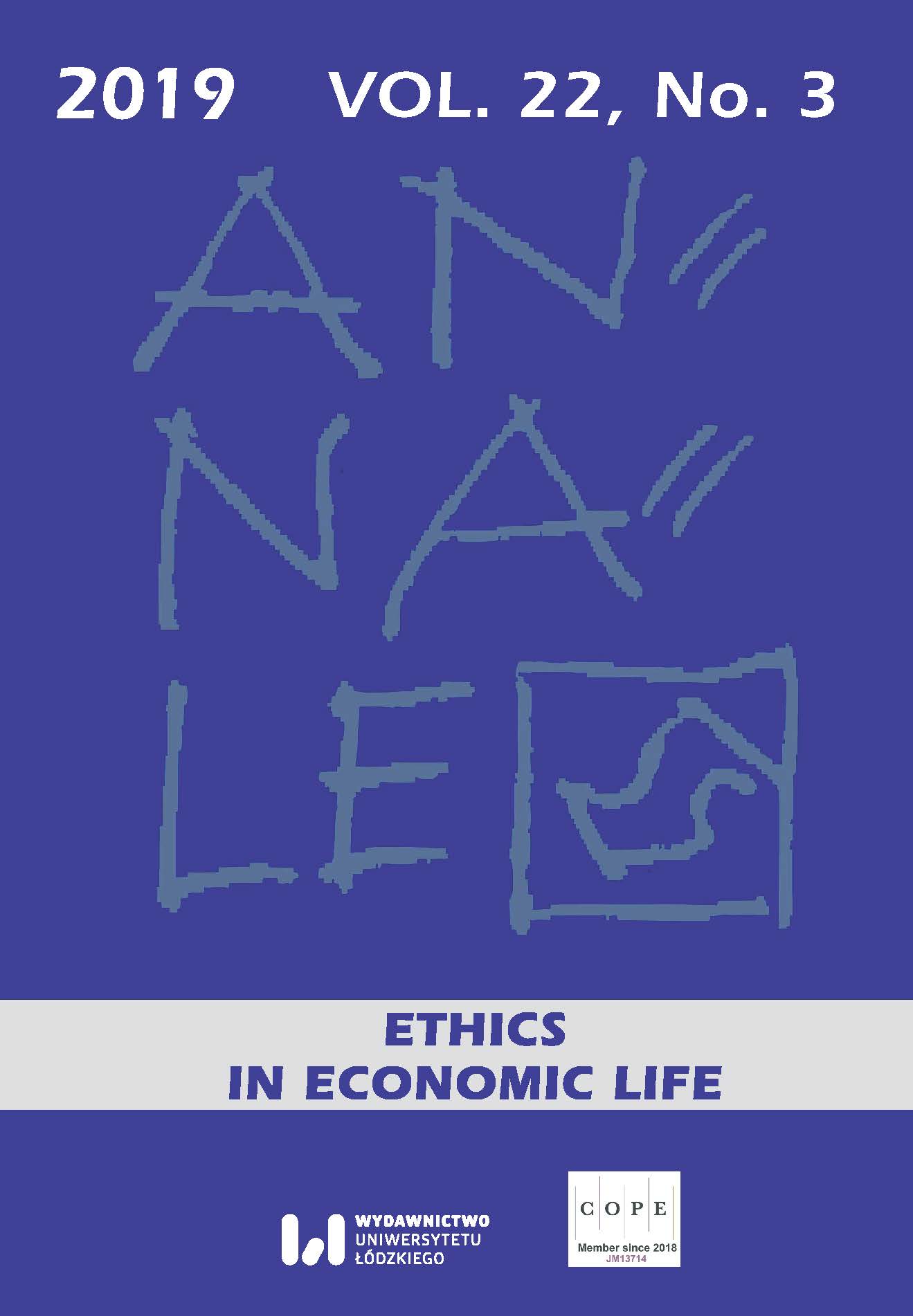Sztuczna inteligencja a inteligencja moralna. Zagadnienia wstępne cybernetyki
DOI:
https://doi.org/10.18778/1899-2226.22.3.02Słowa kluczowe:
φρόνησις, Aristotle, artificial intelligence, cybernetic ethics, moral intelligenceAbstrakt
We live in a time when artificial intelligence is being used in more and more areas of our lives. Its use in the sphere of management has become a big problem. Should we comply with the judgments of the cold rationality of artificial intelligence or, by contrast, are we able to realize the limits of its application? The question should be asked: why can good management not be limited to solutions presented by artificial intelligence? In order to answer this question, one should show what the difference is between artificial intelligence and moral intelligence, and what the use of moral intelligence in management is. The role of ethics in the decision-making process will be shown. The final conclusion is that artificial intelligence will never replace man in management.
Bibliografia
Arystoteles. (1977). Etyka eudemejska. W: Etyka wielka. Etyka eudemejska (W. Wróblewski, tłum.). Warszawa: Państwowe Wydawnictwo Naukowe.
Google Scholar
Arystoteles. (2002). Etyka nikomachejska. W: Dzieła wszystkie, t. 5 (D. Gromska, tłum.). Warszawa: Wydawnictwo Naukowe PWN.
Google Scholar
Bostrom, N. (2016). Superinteligencja. Scenariusze, strategie, zagrożenia (D. Konowrocka-Sawa, tłum.). Gliwice: Wydawnictwo Helion.
Google Scholar
Cathcart, T. (2014). Dylemat wagonika (K. Bażynska-Chojnacka, tłum.). Warszawa: Dom Wydawniczy PWN.
Google Scholar
Gadamer, H.G. (2004). Prawda i metoda (B. Baran, tłum.). Warszawa: Wydawnictwo Naukowe PWN.
Google Scholar
Hare, R.M. (2001). Myślenie moralne. Jego płaszczyzny, metody i istota (J. Margański, tłum.). Warszawa: Fundacja Aletheia.
Google Scholar
Lem, S. (1981). Golem XIV. Kraków: Wydawnictwo Literackie.
Google Scholar
Lennick, D., & Kiel, F. (2007). Inteligencja moralna. Jak poprawiać wyniki prowadzenia interesów i skutecznie zarządzać (I. Szuwalska, tłum.). Wrocław: Wydawnictwo Purana.
Google Scholar
Lindenberg, G. (2018). Ludzkość poprawiona. Jak najbliższe lata zmienią świat, w którym żyjemy. Kraków: Wydawnictwo Otwarte.
Google Scholar
MacIntyre, A. (1996). Dziedzictwo cnoty. Studium z teorii moralności (A. Chmielewski, tłum.). Warszawa: Wydawnictwo Naukowe PWN.
Google Scholar
Smith, A. (1989). Teorii uczuć moralnych. Warszawa: Państwowe Wydawnictwo Naukowe.
Google Scholar
Winch, P. (1990). Etyka a działanie (T. Szawiel, D. Lachowska, tłum.). Warszawa: Państwowy Instytut Wydawniczy.
Google Scholar
Pobrania
Opublikowane
Jak cytować
Numer
Dział
Licencja

Utwór dostępny jest na licencji Creative Commons Uznanie autorstwa – Użycie niekomercyjne – Bez utworów zależnych 4.0 Międzynarodowe.









